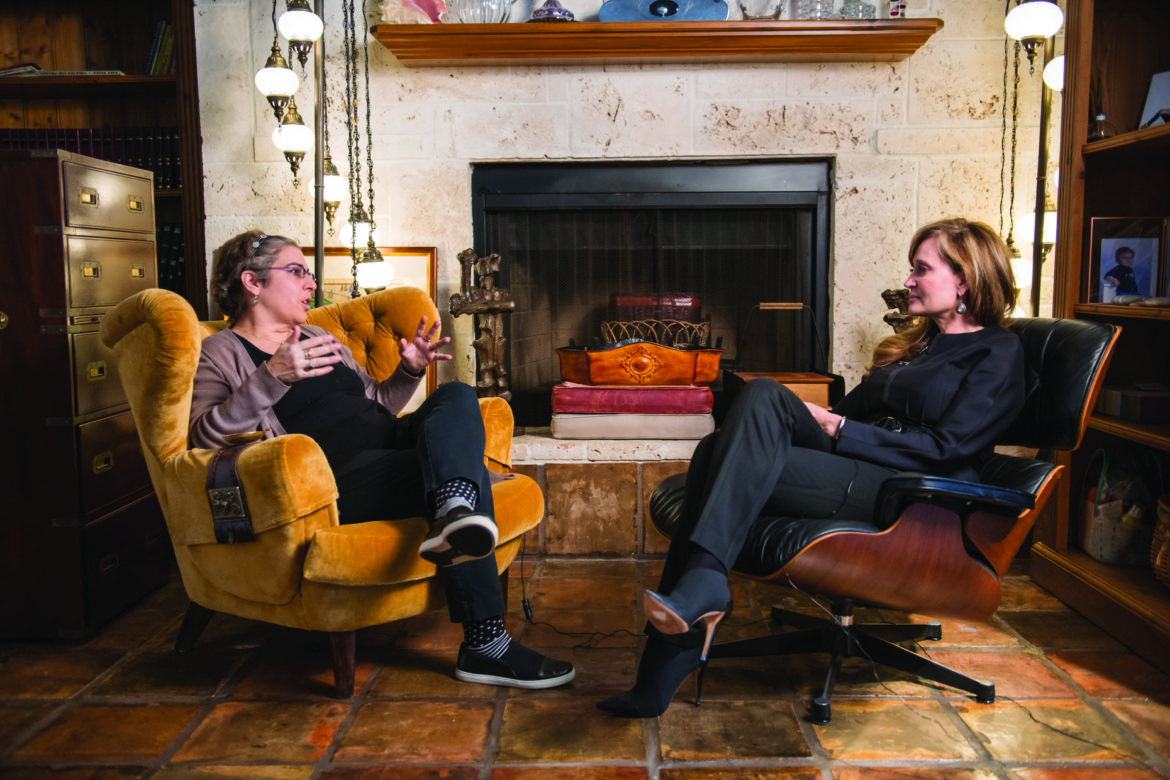Wellness, defined as “the state of being in good health, especially as an actively pursued goal” is a relative term that needs to be interpreted on an individual basis. Just as each person‘s body is unique, what constitutes wellness is specific to a personal set of choices and decisions to find a balance between responsibilities in life and overall health both physical and mental.
My personal experience has given me a steep learning curve. Back in 2013, when my husband requested/demanded that I take a break from an exhausting volunteer schedule, the quiet time forced me to stop ignoring persistent symptoms that I had been having — like the weird bug bites that were not going away, or the irritated gums and newly developed Desquamative Gingivitis that my dentist found at a routine cleaning. While ruling out any “one-in-a-million possibilities,” I actually began my now forever journey of living with Pemphigus Vulgarius (PV), a chronic ultra rare auto-immune disease that has no known cure.
I grew up the daughter of an Orthopedic surgeon and spent my entire life appreciating the miracles of modern medicine. My father could fix anyone and anything, it seemed, so my PV diagnosis was uncharted territory. When a bone is broken, there are ample options for fixing it; however, even with the best surgeon offering a perfect procedure, the recovery is dependent on the patient. My father had a saying that if you treat recovery like the rest of your life, that is how it will be; when you treat recovery as a special time to focus on healing, on the other hand, you can move on to the rest of your life when it is concluded. But there was no clear-cut recovery from this.
The first year of my PV journey, I was actually misdiagnosed and prescribed the wrong medication, ending up significantly worse off for a time. Because few people have expertise in treatments for PV, knowing what to believe and who to trust was daunting. Even before I had the correct diagnosis, my path forward was a slow and not always steady embracing of ways to define and respect my own boundaries and limits.
Standard treatments for PV included high doses of steroids and medications with serious side effects, with little available support, so I sought alternative ways to gain a sense of control. Devouring as much relevant information as possible, I focused my energy on making time for daily exercise and focusing on what foods I ate. A nutritionist suggested some immediate adjustments to my diet, and the foods I now avoid include gluten, dairy, citrus, acid, nightshades and sugar. Improvements didn’t come overnight, but making healthy choices for myself was an empowering experience.
Like many auto-immune issues, my disease responds to stress in a very tangible way. My body doesn’t differentiate between exciting wonderful experiences like my children’s milestone celebrations or the devastating news that my husband had metastasized melanoma. Either way, PV attacks and disintegrates the Desmoglein, or the “glue” that holds the skin and the mucus membranes to our bodies, which leads to fluid-filled blisters. Processing this new information, while managing emotional reactions is exhausting.
Another thing that makes a serious diagnosis so hard to deal with, is that each of my specialists works in a silo, so the responsibility of communicating and managing massive amounts of data falls upon me, the patient. With multiple doctor portals and waiting rooms with reams of forms, dizzying with fine print, I often felt overwhelmed and would mentally shut down.
To manage this additional stress, I now keep a spreadsheet of my medications (close to twenty pills daily), and I bring an extra printout to appointments, for keeping my doctors updated. I request session notes and keep all of this bound in date order, so I have the resources I need to refer to when I am confused or need a reference point. I keep a list of questions in my phone’s calendar so we can cover all concerns and maximize the valuable time of my doctors — many of whom have expressed appreciation for showing up to my appointments so well prepared. Finding ways to be kind to my body has had a big impact on my improvements, and pilates is now another requirement for me to maintain internal equilibrium.
Being a self-advocate extends to other areas of my approach towards wellness now. By actively participating in seeking solutions and spreading awareness, I channel my energy towards something productive and fulfilling by speaking as a local support group leader, patient representative and awareness ambassador on behalf of the International Pemphigus and Pemphigoid Foundation (IPPF). I have overcome my stage fright and attend conferences and events to share my story with professionals.
Managing my diet and stress levels, organizing my resources, and reaching out to spread awareness have all helped me immensely. Patients, caregivers, physicians, and researchers have an intricate set of interwoven priorities. Working together, though, we have a common bond and we will continue reaching for the shared goal of an elusive cure.
By Daphna Smolka

